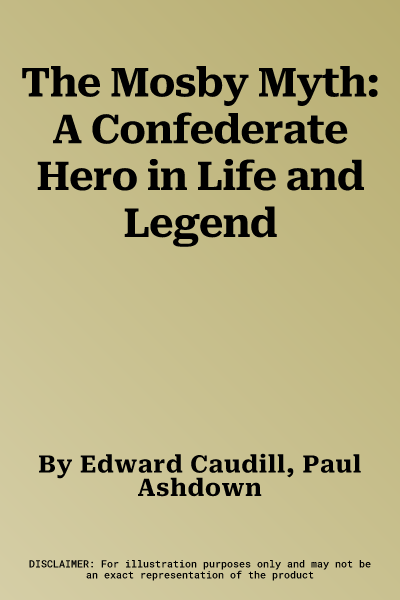Confederate Colonel John Singleton Mosby (1833-1916) was only one of a
number of heroes to emerge during the Civil War, yet he holds a singular
place in the American imagination. He is the irrepressible rebel with a
cause, the horseman who emerges from the forest to protect the embattled
farmer and his household and bring retribution to the invader. Mosby was
the fabled 'Gray Ghost' of the Confederacy, a mythic cavalry officer who
operated with virtual impunity behind Union lines near Washington, D.C.
Within his lifetime, and continuing to the present, Mosby has been
appropriated as a cultural symbol. Mosby has regularly appeared in
various genres of popular culture throughout the nineteenth and
twentieth centuries, becoming a creation of novelists, poets, Hollywood
screenwriters, and biographers. But why has Mosby become a figure of our
collective imagination while other heroes of the conflict have not? The
Mosby Myth: A Confederate Hero in Life and Legend by Paul Ashdown and
Edward Caudill is the first book devoted to explaining Mosby's place in
American culture, myth, and legend.
Through the story of John Mosby, the authors examine how the Civil War
becomes memory, history, and myth through experience, art, and mass
communication. The Mosby Myth provides not just a biography of John
Mosby's life, but a study of his legacy. Ashdown and Caudill present
depictions of Mosby in fiction, cinema, and television, and offer a
revealing analysis that explains much about American culture and the way
it has been affected by the lingering impact of the Civil War.
Well-written and informative, this book is sure to provoke new thought
about the effect of the memory of Mosby-and the memory of the Civil
War-on American society and culture.
The Mosby Myth is an excellent resource for courses on the Civil War.

